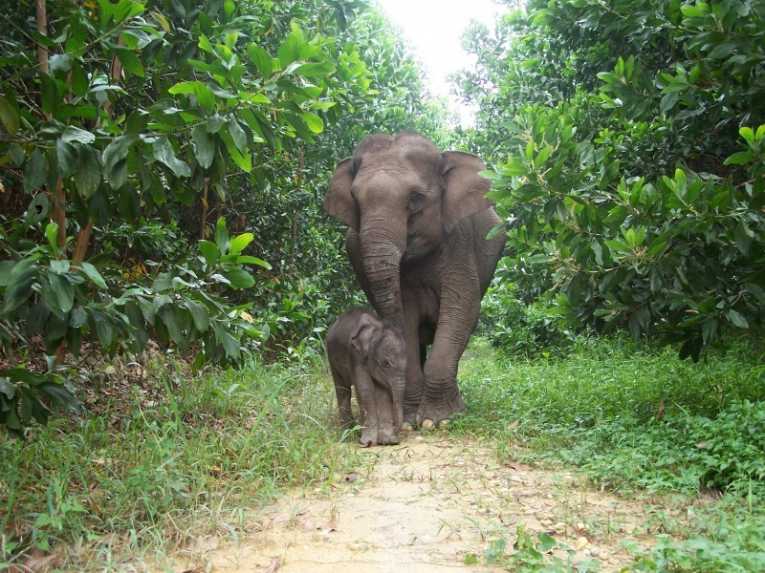The unique pachyderm living on the giant island of Sumatra has halved in population since 1985. Some of the eight provinces have no elephants left, through conflict, capture and killing. The World Wide Fund for Nature (WWF) has today come out declaring the urgent need for Indonesian action. There are now an estimated 2400 animals remaining in a very reduced area, 85% of which is unprotected and being farmed and forested. Because of its size, the giant island holds one of the world's main stocks of Elephas maximus.
The subspecies sumatranus is only found on this, the main island of Indonesia. The other subspecies are spp. indicus, in India itself and Elephas maximus maximus, on Sri Lanka, although the distinct Borneo populations are not accorded sub-species status. (Instead they are given the indica designation, just as those of Burma, Thailand and Malaysia have been classified.)
Significantly, only the Sumatran elephant seems a genetically distinct unit, almost approaching that of a species itself. Rhinos, orangs and tigers are already critically endangered here, and now these few thousand distinctive elephants are said to be unable to survive the next 30 years. Dr. Carlos Drews, Director of WWF's Global Species Programme. "Unless urgent and effective conservation action is taken these magnificent animals are likely to go extinct within our lifetime." We know what situations have arisen previously with large mammals in populated areas both in Indonesia and elsewhere.

Riau province, Sumatra, Indonesia - Deforestation for palm oil plantation and illegal logging for the paper industry; Credit: © Alain Compost/WWF-Canon
To survive, the elephants' habitat must be preserved by a prohibition on forestry conversion. Obviously large regions for elephant are required but areas below recommended sizes could be linked with conservation corridors. Riau province has two thirds of its herds, where pulp and paper and oil palm are creating perhaps the worlds' most rapid deforestations in history. To fly over such regions is horrifying. The elephants here have declined by 80% in less than 25 years.
The Indonesian government has problems in restricting its population spread, but encouragement of tourism and ecological considerations seem likely now to need urgent consideration. For example, Lampung province's elephant herds are down 75% between 1985 and 2002 and only two herds there can have any chance of survival.
While half of the natural forest survived till the 1980s, nowadays the elephants often have no forest left and come into natural conflict with burgeoning populations. With careful management, the loss of this huge forest can be avoided and the delights of Sumatran hospitality, history and ecology become known to wider audiences. The future holds many surprises for human development and not a few shocks to the natural environment too, it seems.










